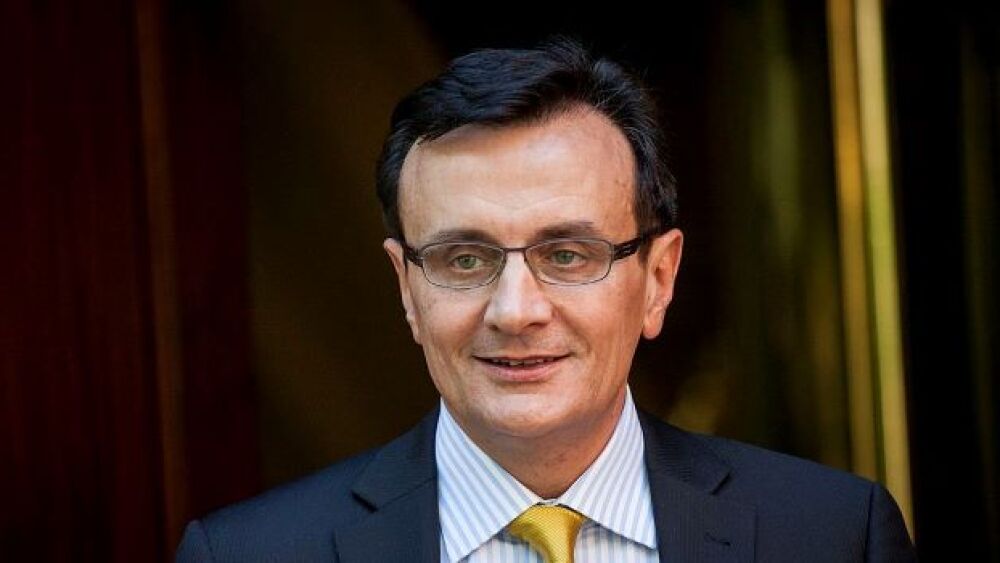As AstraZeneca released its 2021 annual financial report, a BBC documentary suggested that the way scientists and politicians politicized its COVID-19 vaccine may have cost lives.
AstraZeneca CEO Pascal Soriot/Courtesy Rob Stothard/Getty Images
As AstraZeneca released its 2021 annual financial report, a BBC documentary suggested that the way scientists and politicians politicized its COVID-19 vaccine may have cost lives.
For a little background, in April 2020, well before any COVID-19 vaccines were authorized, AstraZeneca and the University of Oxford were leading the way in developing a vaccine. This was partly because Oxford’s Jenner Institute had tested a vaccine against an earlier coronavirus the year before, demonstrating safety. Although it was one of the first to be authorized in the U.K. and Europe, it is not authorized in the U.S.
From the start, the vaccine was developed to be cheaper and more easily stored and transported than other vaccines, targeting lower-income countries worldwide. A year later, there were reports of relatively rare cases of blood clots associated with the vaccine and countries started suspending the deployment of the vaccine. Worries over the blood clots resulted in several countries, including Germany, France, Spain, Ireland, Denmark, Bulgaria, Thailand and others, pausing the use of the vaccine. Even before EU regulators decided, Germany halted distribution to people over the age of 65, and France’s president, Emmanuel Macron, said it was “quasi-ineffective” in that age group. The countries eventually reversed their positions, but the damage to the vaccine and AstraZeneca’s reputation remained.
Professor John Bell, with the University of Oxford, who worked on the shot, told the BBC documentary that scientists and politicians “have damaged the reputation of the vaccine in a way that echoes around the rest of the world. I think bad behavior from scientists and from politicians has probably killed hundreds of thousands of people—and that they cannot be proud of that.”
In the company’s annual report, Pascal Soriot, chief executive officer of AstraZeneca, noted, “We also delivered on our promise of broad and equitable access to our COVID-19 vaccine with 2.5 billion doses released for supply around the world, and we made good progress on reducing our greenhouse gas emissions.”
The vaccine brought in $3.98 billion for the year, with $1.76 billion of it coming in the fourth quarter. The vaccine, however, has largely been ignored as a booster dose, partially because of the various age restrictions and partially because of the controversy. However, the company’s Evusheld (tixagevimab co-packaged with cilgavimab) antibody therapy, which was authorized in the U.S. in Dec. 2021, is expected to shore up declining sales of the vaccine. The company indicated that most of the vaccine revenue in 2022 is expected to come from initial contracts. Still, overall, COVID-19 therapies, both Evusheld and the vaccine, are expected to show a drop this year by a “low-to-mid-twenties percentage.”
In the non-COVID-19 arena, the company announced five of its drugs had recently hit the blockbuster threshold—$1 billion annual sales—and that, Soriot said, “Growth was well balanced across our strategic areas of focus, and we saw double-digit growth in all major regions, including Emerging Markets despite some headwinds in China.” All told, the company has 13 blockbuster drugs, with the five new ones being Tagrisso ($5 billion+), Farxiga ($3 billion+), Lynparza ($2 billion+), Calquence ($1 billion+) and Fasenra ($1 billion+).
After completing its acquisition of Alexion on July 21, 2021, its Rare Disease medicines generated 8% of the company’s total revenue, growing 8% to $3.07 billion.
Its projections for 2022 show an increase of revenues by high-teens percentages, with core earnings climbing mid-to-high 20s.





